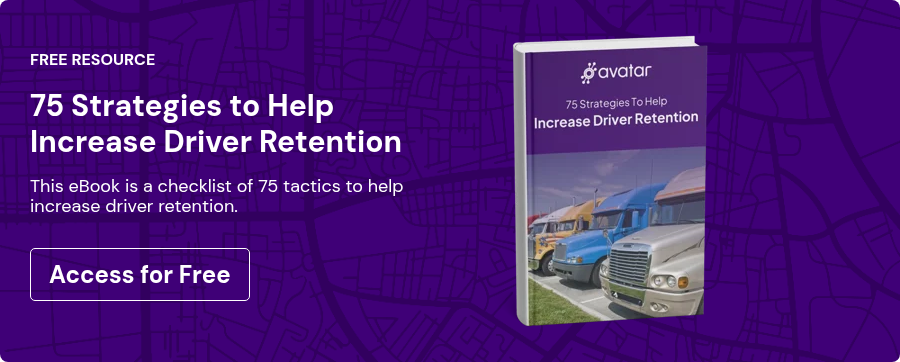Find Truckers Looking for Work, By Serving Current Drivers
Scott Rea
February 14, 2017
The Over-The-Road trucking industry is waking up and not accepting 100% driver turnover as a cost of doing business. Everyone searches for available truck drivers, but many managers forget to start by keeping the drivers they already have. Over the past three years, there has been a strong increase in attention to, and new tools for, driver retention. They all boil down to a single core value: TRUST.
Trust is the firm belief in the integrity, reliability, and justice of another person. It is the foundation for any good relationship.
It’s like the foundation of a building. If it’s strong and stable, the building will stand tall for many years. But if the workmanship is shoddy or the materials used to build it are inferior…the building will crumble. If you take the time to build trust using the proper foundation, and if you continue to nurture relationships, they’ll stay strong and healthy. Without trust, the relationship will crumble.
"If you take the time to build trust using the proper foundation, and if you continue to nurture relationships, they’ll stay strong and healthy."
The ability to build trust is a skill that all leaders need. Some people may think it’s an immeasurable, intangible trait, but that’s not true. Trust is measurable, and building trust is a learnable skill. It all begins with understanding the four building blocks of trust and the practice of using them. The four building blocks are:
- Give and take
- Integrity
- Sincerity
- Commitments
Give and Take
Over-the-road trucking companies ask their drivers to give a lot. The largest sacrifice drivers make for you is family time. Every time dispatch asks a driver to sacrifice a little more family time, it hurts the driver’s relationship with their family. Sure, you give a paycheck every week, but a driver can get that at the company down the street. It’s a two-way street. Giving is not always pulling favors for a driver. It can be simple as a public thank you on your social sites for meeting expectations: on-time delivery, unsolicited customer thank yous, hitting MPG goals, etc.
Integrity
Integrity in dispatch means you never let the priorities of the moment trump your moral compass. A simple check is to only ask a driver to do something you would ask your son or daughter to do.
Sincerity
Trust is earned over time. Part of earning trust comes from other individuals understanding when you’re being sincere. The best way to prove sincerity is to walk a mile in the other person’s shoes. Invest time for dispatch to do ride-alongs with drivers and have drivers shadow dispatch. This time investment will force both sides to develop empathy. This empathy helps the other side know they are sincere when they need to resolve a conflict together in the future.
Commitments
If you can consistently deliver on promises you make, that is the most effective way to build trust. Conversely, breaking promises is the most effective way to kill trust. Our friend Chalmers Brothers states in this post that there are four acceptable answers when a driver asks anything of the company:
- Yes (creates a commitment)
- No (does not produce a commitment)
- Counter-Offer (“I can’t promise Friday at noon… how about Monday at 4:00pm?” )
- Commit-to-Commit (“Let me check back when I know more, and I’ll have an answer for you by tomorrow at 9:30am.”)
Trust is Efficient
When trust is lacking, in a company or even in a relationship, it places a hidden "tax" on every communication, every interaction, every strategy, and every decision. Low trust reduces the speed at which work happens and increases operating costs. Significant distrust may actually double the cost of doing business and triple the time it takes to get things done because of turnover, delays, and other factors affected by a lack of trust.
Put trust at the forefront of any driver retention strategy. You’ll have to find fewer truck drivers looking for work that way.
Continued Learning
Struggling to retain drivers? Download our ebook on 75 Strategies to Help Increase Driver Retention today to get a jumpstart on retention ideas.
Sign up for our newsletter
Get the latest articles on all things transportation delivered straight to your inbox.
Schedule a live demo

